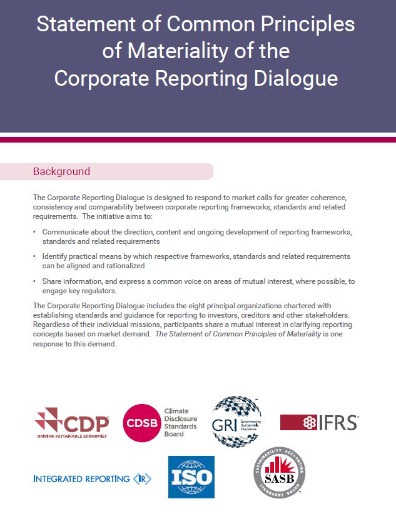- Your cart is empty
- Continue Shopping
Cash Basis vs Accrual Basis
Content
- Check out Our Accounting Software
- How Do You Explain Accrual to Non-Accountants?
- Revenue Recognition Principle (IFRS): Definition, Using, Formula, Example, Explanation
- AccountingTools
- What Is Accrual Accounting and Why Is It Important?
- Cash vs. accrual at a glance
- Meaning of accrual accounting in English
- What’s the Difference Between Cash Basis and Accrual Basis?
The cash method is typically used by small businesses and for personal finances. Cash accounting records payments and receipts when they are received. Accrual records payments and receipts when services or good are provided or debt is incurred.
- We also allow you to split your payment across 2 separate credit card transactions or send a payment link email to another person on your behalf.
- Therefore, it makes sense that such events should also be reflected in the financial statements during the same reporting period that these transactions occur.
- The upside is that the accrual basis gives a more realistic idea of income and expenses during a period of time, therefore providing a long-term picture of the business that cash accounting can’t provide.
- Regardless of the fact that cash payment was never received, the revenue in such a case would be recognized under accrual accounting.
- It is more complex to manage accounts receivable, accounts payable and prepaid or deferred assets than to simply track cash in and cash out under the cash basis method.
- Cash accounting better tracks cash inflows and outflows in real time, but does not match revenues and expenses in an accounting period very well.
For example, imagine a dental office buys a year-long magazine subscription for $144 ($12 per month) so patients have something to read while they wait for appointments. At the time of the payment, the dental office sets up a prepaid expense account for $144 to show it has not yet received the goods, but it has already paid the cash. Under the accrual method, the $5,000 is recorded as revenue as of the day the sale was made, though you may receive the money a few days, weeks, or even months later. The key advantage of the cash method is its simplicity—it only accounts for cash paid or received. The accounting journal is the first entry in the accounting process where transactions are recorded as they occur.
Check out Our Accounting Software
And it provides an accurate picture of your business’ liquidity and your current assets and liabilities. It’s worth noting that accrual accounting is the opposite of cash basis accounting. Cash basis accounting only records financial transactions after payment has happened. If your business relies entirely on cash payments, both for revenue and for expenses, then accrual accounting may not be right for your business.
- Cash basis accounting is an accounting system that recognizes cash when received and bills when paid.
- Products-based businesses that carry inventory, even if they’re small, usually use accrual accounting because the cash method doesn’t properly account for cost of goods sold and sinks gross profit.
- Another disadvantage of the accrual method is that it can be more complicated to use since it’s necessary to account for items like unearned revenue and prepaid expenses.
- This method allows the current and future cash inflows or outflows to be combined to give a more accurate picture of a company’s current and long-term finances.
- For example, you would record revenue when a project is complete, rather than when you get paid.
The sale is
entered into the books when the invoice is generated rather than
when the cash is collected. Likewise, an expense occurs when
materials are ordered or when a workday has been logged in by an
employee, not when the check is actually written. The downside of
this method is that you pay income taxes on revenue before you’ve
actually received it.
How Do You Explain Accrual to Non-Accountants?
Though the store sold the stock purchased at the beginning of the month, the money is not yet fully in the bank and raising the fear of a cash flow problem. By using accrual accounting, all sales, both cash and credit, are included. To manage this, the store runs an ‘accounts receivable’ https://kelleysbookkeeping.com/ ledger, recording all transactions as revenue on the day of sale. The accrual accounting method makes the store’s revenue streams obvious from the time the buyer makes the purchase. For example, a company should record an expense for estimated bad debts that have not yet been incurred.

The cash method is also beneficial in terms of tracking how much cash the business actually has at any given time; you can look at your bank balance and understand the exact resources at your disposal. Comment below if you have any questions related to accrual accounting entry. Under Accrual Accounting, the accrual amount is based on the best estimate. Accrual Concept is a kind of accounting estimate as you don’t know the actual value of expenses.
Revenue Recognition Principle (IFRS): Definition, Using, Formula, Example, Explanation
Accrual accounting provides a more accurate picture of a company’s financial position. However, many small businesses use cash accounting because it is less confusing. The general concept of accrual accounting is that accounting journal entries are made when a good or service is provided rather than when payment is made or received. Accrual accounting is the preferred method of accounting for most businesses because it offers a more accurate representation of a company’s finances. Investors and lenders may require this method, and even if they don’t, the consistency of key metrics could make your business look more stable and increase the chances of receiving funding.
- We accept payments via credit card, wire transfer, Western Union, and (when available) bank loan.
- The differences between accrual and cash accounting also have significant tax implications.
- The accrual method seeks to record the entire process of a transaction.
- An example of accrual basis accounting is to record revenue as soon as the related invoice is issued to the customer.
An example of accrual basis accounting is to record revenue as soon as the related invoice is issued to the customer. There are several accounts used under the accrual basis of accounting that are not employed under the cash basis of accounting. These accounts include accounts receivable, accounts payable, accrued revenue, and accrued liabilities. Accounts receivable include amounts billed to customers for which payment has not yet been received, while accounts payable are amounted billed by suppliers that have not yet been paid to them. The accrued revenue account contains amounts not yet billed to customers, but which have been earned. The accrued liabilities account contains amounts not yet billed by suppliers, but for which goods have already been delivered or services performed.
AccountingTools
Businesses that count how much cash they have – and what invoices are owed – are doing accrual accounting. Note that cash-basis accounting is used predominantly by private companies. For that reason, for distressed companies facing a liquidity shortage, cash-basis accounting is used for internal purposes to share with lenders and/or the Bankruptcy Court. To change accounting methods, you need to file Form 3115 to get approval from the IRS. That being said, the cash method usually works better for smaller businesses that don’t carry inventory. If you’re an inventory-heavy business, your accountant will probably recommend you go with the accrual method.
- Accrual accounting uses double-entry accounting, where there are generally two accounts used when entering a transaction.
- As a result, more companies are looking for highly skilled financial accounting professionals, well-versed in this method.
- It does a poor job of tracking cash flow and an excellent job matching revenues and expenses.
- There are several accounts used under the accrual basis of accounting that are not employed under the cash basis of accounting.
- It differs from cash accounting, which recognizes revenues and expenses when the cash is exchanged.
- When a company receives cash before a good has been delivered or a service has been provided, it creates an account called deferred revenue, also referred to as unearned revenue.
After submitting your application, you should receive an email confirmation from HBS Online. If you do not receive this email, please check your junk email folders and Accrual Basis Of Accounting Definition double-check your account to make sure the application was successfully submitted. Our easy online application is free, and no special documentation is required.
What Is Accrual Accounting and Why Is It Important?
We’ll look at both methods in detail, and how each one would affect your business. The under the Accrual Accounting Concept, the accrual amount is based on the best estimate, and there is no right or wrong balance. The real economy here means the actual performance of the entity’s management. For example, the direction of company A will reward by its board of directors if net sales for the year 2016 reach USD 30,000,000.

Companies technically earn income when a service is provided or a product is delivered. Accrual basis is a method of recording accounting transactions for revenue when earned and expenses when incurred. The accrual basis requires the use of allowances for sales returns, bad debts, and inventory obsolescence, which are in advance of such items actually occurring.
Accrual basis accounting is one of two leading accounting methods and the preferred bookkeeping method for providing an accurate financial picture of a company’s business operations. In cash-basis accounting, the main difference is that the cash value shown on the balance sheet represents the actual amount of cash in the company’s bank account. Accrual accounting records revenues once they are earned – which means the product/service was delivered to the customer and the payment is reasonably expected by the company in return. Based on an accrual basis, the entity needs to recognize this USD 50,000 as revenue in 2016 accounting records no matter it issued invoices to the customers or customers have not paid the fee yet. The Accrual basis is the accounting principle that use to recognize and record accounting transactions or events in the financial statements regardless of its cash flow.
